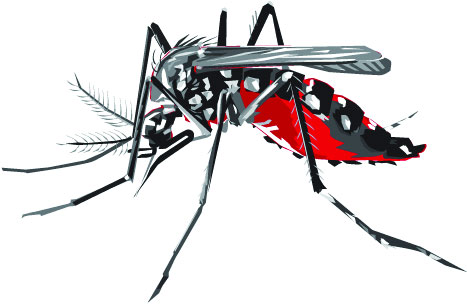Half of world’s people at dengue risk: WHO
Spreads 129 countries so far
Industry Report: The World Health Organization (WHO) has warned that half of the world’s population is at risk of contracting dengue fever. Raman Velaudhan, head of WHO’s tropical diseases unit, gave this warning at a UN press conference on Friday.
He said WHO has recorded an eight-fold increase in dengue cases between 2000-2022. At this time, the number of infected increased from 5 lakh to 42 lakh. Apart from this, he expressed fear that the actual number may be much higher. Because the organization has received more accurate statistics in recent years.
Velaudhan said nearly half of the world’s population is at risk of dengue. Dengue affects approximately 129 countries. He also mentioned that about 100 to 400 cases are registered every day.
He also said that using mosquito nets while sleeping, not allowing water to accumulate in homes and office courts – these may provide some protection. But the most effective way to prevent this disease is to completely destroy the Aedes mosquito and its breeding grounds. Therefore, WHO advises the world to be aware.
The organization says that the number of people infected with dengue is increasing around the world. Right now, half of the world’s total population is at risk of dengue.
The disease is spreading at an unimaginable speed in rainy and hot regions. If the spread of dengue is not stopped at present, a record number of people will be infected this year. The announcement of dengue epidemic may come in the next day.
Dengue situation so serious
Public health experts Dr Mushtaq Hossain say that even though dengue infection has continued for the past few years, it has not been given much importance. As a result, this year it became evident earlier in the season. Doctors say that compared to the last few years, the condition of dengue patients is deteriorating very quickly.
Mushtaq Hossain says, ‘Actually there was no break in the arrival of dengue patients between last year and this year. We got patients even in winter. A month and a half before the start of the season, we are getting more patients.
Dengue was first detected in Bangladesh in 1965. The disease was then known as Dhaka fever. But since 2000, the incidence of the disease started increasing.
“Four types or serotypes of dengue are found in infected people. Among those who are now infected, the number of second infections is high. Before 2000, we saw that humans were infected with a form of dengue. As a result, a resistance would develop in them. But when people start getting all four types, the immune system doesn’t work as well. The risk of infection then triples.”
Additional Director General of Health Department Dr. RashedaSultana said that dengue infection situation in the country is getting worse. But every hospital now has dengue corner. Every hospital has enough beds ready. Even if the number of infected people increases, we are ready to provide treatment.
In Bangladesh last year, 62,382 patients were admitted to hospital due to dengue. A record 281 people died. In that year too, dengue infection increased a lot in the months of July and August.
The number of dengue cases was high in the previous year as well. The most affected was in 2019. Why has no effective measures been taken to prevent or control dengue after such an infection has been going on for the past few years?
Dr. Mushtaq Hossain in response to such questions says, ‘The kind of measures being taken to deal with dengue are very traditional measures being taken. Those concerned think that it may be a temporary disease, it will go away after a few days. As a result, no effective or long-term measures are being taken anywhere. As a result, the dengue disease is very dangerous. That is not happening with the importance we need to jump on. As it is an epidemic, no measures are being taken.
Experts in the health sector say that there is no major research and surveillance on the dengue disease. So far only information on hospitalized patients is coming to health officials. But apart from this, there is no information about the huge number of people who are getting infected and are receiving treatment at home.
No major steps are being taken across the country to control mosquitoes. Even the drugs that are being used to control mosquitoes, no one knows whether they are effective.
He says, ‘With that, the density of Aedes mosquitoes has increased. In cities and villages, increased use of polythene, plastic bottles, water logging, water logging due to urbanization has led to an increase in dengue mosquitoes, resulting in an increase in patients.
President Joe Biden tests positive for COVID-19 while campaigning in Las Vegas, has ‘mild symptoms’
International Desk: President Joe Biden tested positive for COVID-19 while traveling Wedne…








